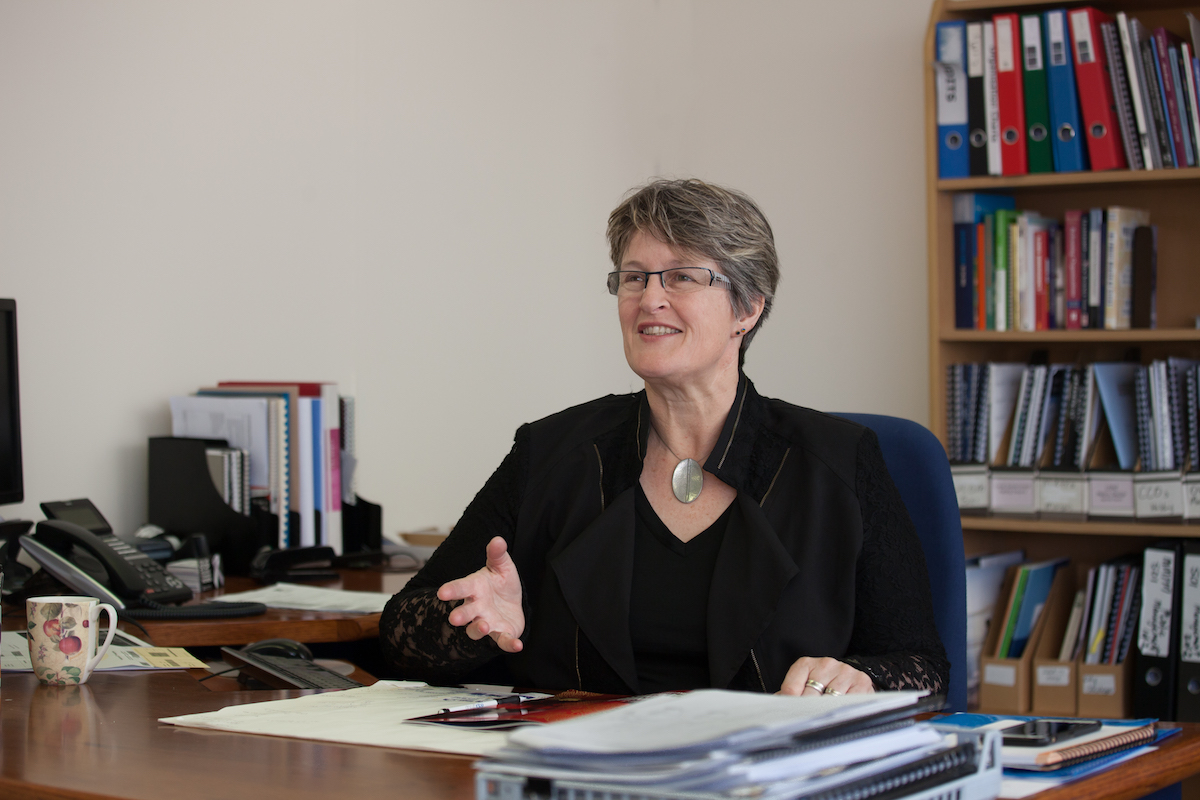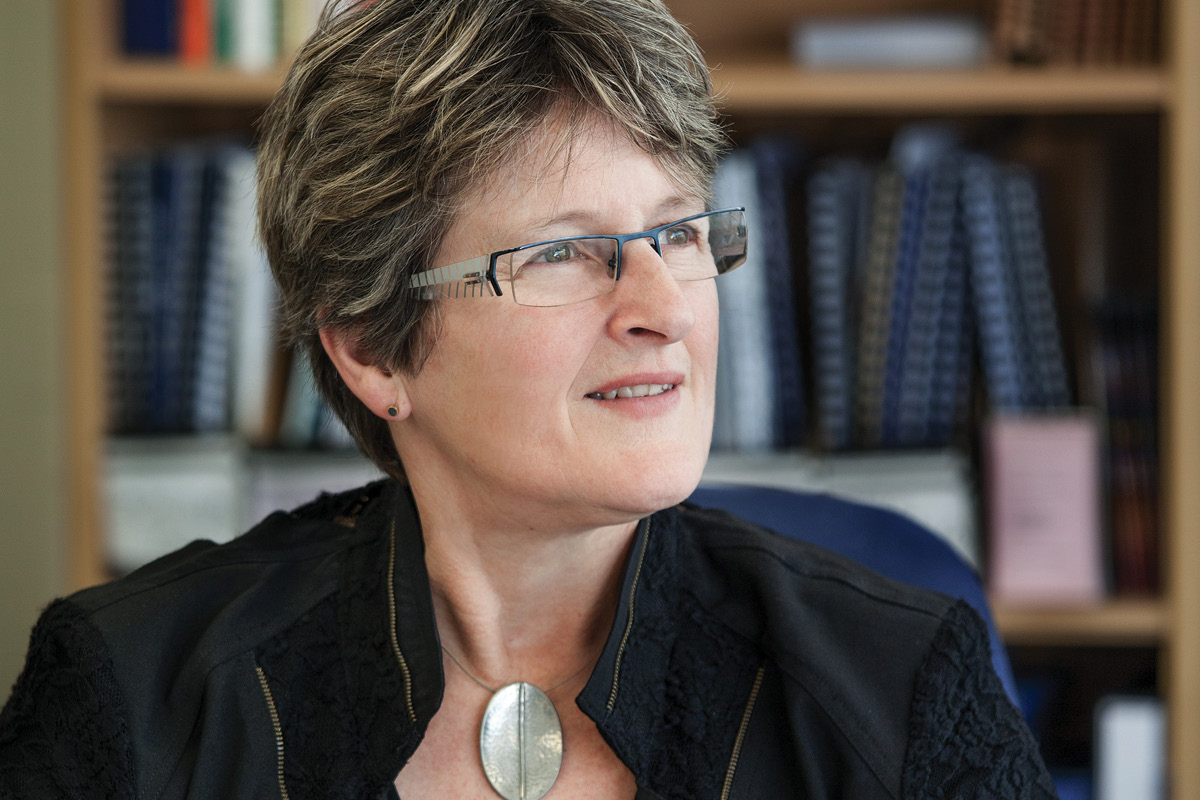In 1991, Sue Bidrose stopped by Dunedin on the way home from a long trip, intending to make a flying visit to catch up with friends. Before long, however, she was on the phone, organising to sell her house and make the stay more permanent. She had fallen for the city’s natural beauty, abundant wildlife and fascinating heritage. She wasn’t going home.
“I remember thinking: ‘How come I didn’t know that Dunedin is like this?’. This is New Zealand’s best-kept secret!” She took up a job in the city, staying until family commitments intervened in 1998. But even then, she could not get enough. “I always knew that I wanted
to come back to Dunedin, that it felt like home for me.”
Sue Bidrose makes her return
She did return to the South Island city in 2010, taking up a role as General Manager of Strategy and Planning at Dunedin City Council. Then in 2013 she progressed to the CEO role, having responsibility for providing services to the city’s population of 130,000. She says her time under previous CEO Paul Orders was invaluable.
“He was an excellent mentor to me and I was very sad when he went back to Cardiff after two years. But I loved working for him and that period was valuable in terms of getting ready to be a CEO. Since then, he has been somebody that I’ve leaned on from time to time as well.”
Under Paul, the council had begun a process of modernisation. Sue describes the priorities as updating its policies and protocols, filling council positions which had remained vacant and giving the council an injection of purpose. The latter tied in with an extensive 10-year plan for the city that the council drafted. The process is ongoing. “We’re nearly there, which is really good,” Sue begins.
“There’s been a lot of change in a short space of time in this organisation. Now, when we do get things wrong, we’re learning a lesson and making sure it won’t happen again. That’s what I think people expect of the public sector.”
Positive key indicators
Not only is the council’s performance trending in the right direction, but key indicators like population growth and job creation are positive for the city after a period of inertia. Dunedin also won a competition where the prize was giga-speed wi-fi being installed across the city.

It now has the fastest average internet speed in the southern hemisphere. Sue says the benefits for local business have been significant, especially for young entrepreneurs and those in the high-tech online space.
Despite this progress, the city needs to keep improving its infrastructure, while also ensuring that the cost of living for its residents does not rise too sharply. Sue says there are challenges in pulling off this balance, especially when the council is also working to reduce debt and its only major revenue stream is property tax.
“It’s a pretty blunt tool,” she laments of the tax. “But we need to make sure that we are keeping the working-age population here and sending some sizzle that this is a good place to invest.”
A modern, liveable city
One key to making the city appealing to working-age residents is the modernisation of its CBD. “Good, modern cities have main streets that don’t really look like ours and it’s time to do that work,” Sue explains. The council is also seeking to create better links with the harbourside and build a network for cyclists.
The latter would make the most of the area’s natural beauty and also provide better commuting options for residents. Faced with such complex projects, Sue makes an early start to each working day by reading up on issues such as urban renewal, climate change preparedness and making cities more women-friendly. Not only does this reading remind her that most world cities are facing similar issues, it also helps inform her decision making.
“The more you read, the less you’re making leaps of faith, because you’ve got a bit of background to draw on, and you are better equipped to talk with the experts.”
Sue says her work ethic and strong belief in what she is doing also help her meet the challenges head on. “I have a strong public service ethic and I instil that into the people I work with. On every floor of the building as I walk through, I find people who love the city. The vast bulk of them want to make Dunedin a better place, which is a fabulous starting point.”
On every floor of the building as I walk through, I find people who love the city.
She says the best way to ensure productivity is simply to surround yourself with the right staff. “It’s important to have a good senior leadership team who all know what they’re doing and then not step into their workspace. Know what’s going on, but don’t try to do it for people. I’m fortunate to have a team who know what they’re delivering. I like the advice of: ‘Always hire people who are better than yourself’.”
People make the council what it is
Sue also pays tribute to the councillors she works with. At the most recent council election, all of the existing councillors who contested were returned. Sue says this shows the faith the community has in them.
“They are my board of governors and, at the same time, they’re elected to be representatives of the community. They’re the people who do the strategic decision making, and I’m very lucky; I’ve got a good group.”
In working to make Dunedin the best it can be, Sue sees her role as simply building on what is already special about the place, rather than trying to reinvent it. “Dunedin is a fantastic city,” she enthuses. “There a little modernising that needs to be done here and there, but it’s tinkering at the edges of what is really one of the world’s great small cities.”



